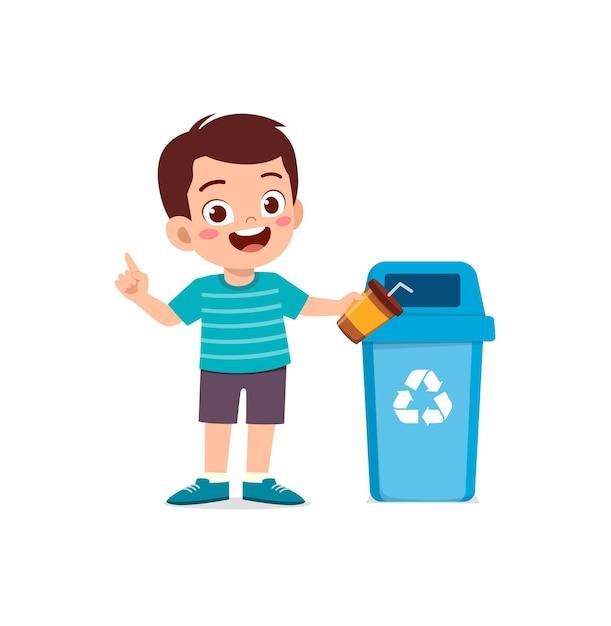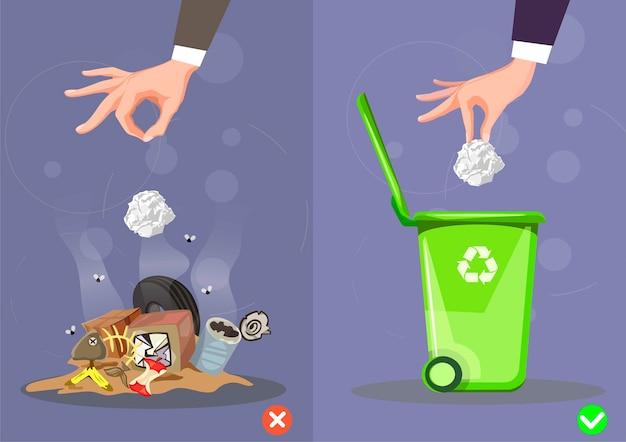Welcome to my blog where we delve into thought-provoking topics and question the realities we often take for granted. Today, we’re turning our attention to education and whether a staggering claim holds any truth: is it really possible that 98% of what we learn is a waste?
In a world where information is readily accessible and the pursuit of knowledge is highly valued, this notion may seem baffling. After all, we spend years in school, diligently absorbing information across various subjects. But have you ever stopped to ponder how much of that knowledge we actually retain and use in our daily lives?
Join me as we navigate through studies, personal anecdotes, and expert opinions to shed light on the effectiveness of our education system. We’ll explore the percentage of information we retain from school, the practicality of the knowledge we acquire, and even delve into the secrets of finding happiness and satisfaction in our lives.
So, grab a cup of coffee, get comfortable, and let’s embark on this insightful journey together. Join me as we question the status quo and explore the fascinating world of education and personal growth.

Is it true that 98% of what you learn is a waste?
Have you ever heard the shocking claim that 98% of what you learn is a waste? It’s the kind of statement that can make you question every minute spent studying or attending classes. But is there any truth to this mind-boggling statistic? Let’s take a closer look and see if we can separate fact from fiction.
Debunking the Myth
The notion that 98% of what we learn is useless sounds ludicrous, and fortunately, it is! This exaggerated claim has been circulating for years, offering a rather pessimistic view of human knowledge. While it makes for an attention-grabbing headline, the reality is far more nuanced.
The Importance of Foundation
Contrary to the 98% myth, learning the basics and building a solid foundation is crucial for any area of expertise. Just like constructing a sturdy house, you need a strong knowledge base to support complex ideas and advanced skills. Without a firm grasp of the fundamentals, progress can be limited, and understanding can dwindle.
Knowledge is Like a Toolbox
Think of knowledge as a toolbox rather than a percentage game. Every piece of information you acquire adds a tool to your repertoire. While you might not use every tool every day, they are there when you need them. Each concept or skill contributes to your overall understanding and can be applied when the situation arises.
The Power of Serendipity
Another important factor to consider is serendipity – the unexpected connections and insights that can arise from seemingly unrelated knowledge. The more you learn, the greater the potential for these “Aha!” moments. What may seem irrelevant at first can unexpectedly become the missing piece of the puzzle or inspire a breakthrough idea. In this way, even seemingly useless knowledge can have tremendous value.
Embracing the 2%
So, if the claim that 98% of what you learn is a waste is a myth, what about the remaining 2%? Well, those precious gems of knowledge are the ones that truly stand out. They are the game-changers, the “wow” moments, and the transformative ideas that shape our lives and society. While they might be rare, they have the power to propel us forward and make all the learning worthwhile.
Learning for Life
Ultimately, the value of learning extends far beyond the immediate utility of each tidbit of information. The process of learning itself expands our minds, challenges our beliefs, and keeps us curious and engaged with the world. It’s not just about the destination; it’s about the journey of discovery and personal growth.
So, is it true that 98% of what you learn is a waste? Absolutely not! While not everything we learn may be immediately applicable or memorable, each piece of knowledge contributes to our overall understanding and opens doors to unexpected opportunities. So keep learning, exploring, and embracing the magic of knowledge, because you never know when that 2% will change your life.
Now that we’ve debunked this myth, let’s dive deeper into the importance of foundational knowledge and why serendipity matters in the learning process.

FAQ: Is it true that 98% of what you learn is a waste?
Are you tired of spending countless hours studying and wondering if it’s all worth it? Well, you’re not alone! There’s a common misconception that a significant portion of what we learn is useless. But is it really true? In this FAQ-style guide, we’ll answer some burning questions about the value of education, the retention of knowledge, and finding happiness in life. So, buckle up and get ready for some eye-opening revelations!
How do you make yourself happy alone
Finding happiness within yourself is crucial, and it doesn’t have to be as complicated as it sounds. Here are a few tips to help you on your journey:
1. Practice self-care: Pamper yourself, indulge in hobbies, and take time off to recharge.
2. Cultivate positive relationships: Surround yourself with supportive and uplifting people who bring joy to your life.
3. Set goals and celebrate achievements: Take small steps towards your dreams and acknowledge your accomplishments along the way.
4. Embrace gratitude: Focus on the good things in your life and express appreciation for them. Remember, the little things count too!
5. Live in the present: Don’t dwell on the past or worry too much about the future. Enjoy the here and now!
Is it true that 98% of what you learn is a waste
Ah, the infamous 98% claim! While it may sound shocking, it’s important to take it with a grain of salt. The claim suggests that nearly everything we learn is useless, leaving only 2% as valuable knowledge. However, this statistic is highly exaggerated and lacks solid evidence to support it. Learning is a unique and personal journey, and what may seem irrelevant today could prove valuable in unexpected ways tomorrow. So, don’t let this misleading statistic discourage your thirst for knowledge!
What percentage of information do we retain from school
Ah, the good old school days! It’s a common question: how much do we actually retain from our educational endeavors? While the exact percentage varies from person to person, studies suggest that we tend to retain around 20% of what we learn in school. However, this shouldn’t be disheartening. Education equips us with essential skills, broadens our horizons, and lays the foundation for future learning and personal growth. Remember, it’s not just about the numbers; it’s about the lifelong impact education has on our lives.
How much knowledge do you use from school
Oh, the “When will I ever use this in real life?” question haunts us all! It’s true; some of the things we learn in school may not seem directly applicable to our daily lives. However, the knowledge we gain in school goes beyond just facts and figures. It helps develop critical thinking, problem-solving abilities, and a thirst for knowledge that can be beneficial in various professional and personal scenarios. So, even if you can’t recall the quadratic formula on command, the skills and mindset you cultivated in school are likely helping you navigate the complexities of life without even realizing it!
How can I stay happy and positive in life
Happiness and positivity can sometimes feel elusive, but fear not! Here are a handful of strategies to help you stay on the sunny side of life:
1. Practice self-care: Take care of your physical, emotional, and mental well-being.
2. Surround yourself with positive influences: Seek out supportive, uplifting people who radiate positivity.
3. Shift your perspective: Focus on the good things, embrace challenges as opportunities, and learn from setbacks.
4. Engage in meaningful activities: Pursue hobbies and passions that bring you joy and a sense of purpose.
5. Cultivate gratitude: Appreciate the little things, express gratitude, and count your blessings at every chance.
6. Maintain a healthy work-life balance: Dedicate time to both work and personal life to avoid burnout and nurture your overall well-being.
How can I learn to be happy
Ah, the pursuit of happiness! It’s a journey filled with self-discovery and personal growth. Here are a few techniques to help you along the way:
1. Practice mindfulness: Be present, embrace the moment, and become more aware of your thoughts and emotions.
2. Seek positive experiences: Engage in activities that bring you joy, fulfillment, and a sense of accomplishment.
3. Nurture relationships: Cultivate meaningful connections, invest time in loved ones, and cherish moments together.
4. Embrace imperfection: Don’t chase perfection; accept that it’s okay to make mistakes and learn from them.
5. Find purpose: Discover your passions, set meaningful goals, and align your actions with your values.
Remember, happiness is a personal and ever-evolving journey. Be patient, kind to yourself, and open to new experiences along the way!
What questions will you ask a person who is satisfied with their professional life
Meeting someone content with their professional life is a wonderful opportunity to gain insight and inspiration. Here are a few questions to ask them:
1. What initially drew you to this profession?
2. How do you stay motivated and passionate about your work?
3. What challenges have you faced along the way, and how did you overcome them?
4. What advice do you have for someone starting their career in this field?
5. How has your professional life impacted your overall happiness and well-being?
Can I ask who will be interviewing me
Ah, the curiosity of knowing who you’ll be facing in an interview! While it’s natural to wonder, it’s usually best to focus on preparing yourself rather than the specific individuals conducting the interview. However, if you do feel the need to ask, it’s acceptable to inquire about the general structure or format of the interview. Remember, it’s always important to approach interviews with confidence, a positive mindset, and a well-prepared arsenal of experiences and skills.
Why do you need to love your job
They say if you love what you do, you’ll never work a day in your life! While it may sound like an idealistic dream, there’s truth to it. Loving your job has multiple benefits, such as:
1. Motivation and enthusiasm: When you love what you do, you’re naturally more motivated and excited to tackle each day.
2. Higher job satisfaction: Enjoying your work leads to a more fulfilling and satisfying professional life.
3. Improved productivity: Passion and enjoyment translate into increased productivity and better results.
4. Positive mental well-being: Loving your job can contribute to reduced stress levels and overall mental well-being.
5. Increased creativity: When you’re passionate about your work, you’re more likely to think outside the box and bring fresh ideas to the table.
Remember, finding a job you love might require some exploration, but the rewards are invaluable!
Now armed with these enlightening answers, you can tackle the misconceptions about learning and embrace the pursuit of happiness with renewed confidence. Keep learning, growing, and seeking joy in every aspect of your life. May your journey be filled with knowledge, laughter, and endless possibilities!
